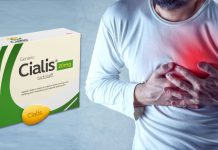Americans spend around $35 billion on dietary supplements every year, which are considered to have health benefits but most of them do nothing at all; they do not even work.
In an article published online in the Washington Post, writer Tamar Haspel explained how we are spending so much on something that does not work.
Haspel spoke to a few experts to know whether dietary supplements containing vitamins, minerals, herbs, and other substances are useful and why people are spending so much on those products.
She discussed with scientific and health communications consultant with the Office of Dietary Supplements, Carol Haggans, and deputy director of the National Center for Complementary and Integrative Health, Craig Hopp.
Hopp told Haspel, “It’s a short list. Ginger for nausea, peppermint for upset stomach, melatonin for sleep disruption. And fish oil does seem to show some promise for cardiovascular disease, although some of the data is conflicting.” He also said supplements containing turmeric, ginkgo, St. John’s wort, and Echinacea have not shown benefits in trials.
Haggans pointed out that supplements containing B vitamins do work, such as folic acid that reduces the risk of fetal neural tube defects and vitamin B12 for gut health. She also noted that a combination supplement could delay macular degeneration and some daily multivitamins could decrease the risk of certain diseases.
In addition, dietary supplements can meet the daily recommendations if you do not get essential nutrients, such as magnesium, through diet.
Haspel also checked in with Andrea Wong from the Council for Responsible Nutrition, who said some of the same health benefits and added that the U.S. Food and Drug Administration (FDA) approved supplements containing calcium and vitamin D for reducing the risk of osteoporosis.
Some researchers say some dietary supplements contain harmful ingredients that could increase the risk of health issues.
Peter Lurie, president of the Center for Science in the Public Interest, told Haspel that a supplement containing ephedra killed 155 people, promoting the FDA to recall the product from the market in 2003. Ephedra is a substance that works as an appetite suppressant and energy booster.
To know more about what other experts have to say about the pros and cons of dietary supplements, go through the article titled “Most dietary supplements don’t do anything. Why do we spend $35 billion a year on them?” by Haspel. The article was published online in January on the Washington Post.























